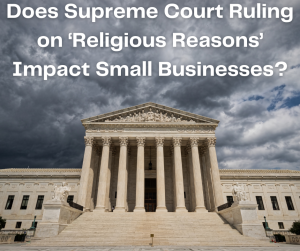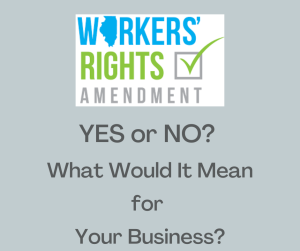Small businesses and other employers are likely to find it more difficult to refuse requests for religious accommodations after the U.S. Supreme Court’s ruling in a recent case, Groff v. DeJoy, which concerned a postal worker who unsuccessfully requested to be off-the-clock every Sunday—when the post office still makes deliveries for Amazon—citing his Evangelical Christian faith.
Gerald Groff, a Pennsylvania man, nonetheless kept being put on the schedule for Sundays and disciplined for not working while his co-workers were stretched thin attempting to cover his routes. He resigned, sued, lost his case and lost again on appeal—but the Supreme Court’s unanimous ruling in June established a higher standard for employers who claimed they would face an “undue hardship” to make religious accommodations.
 Chicago Business Attorney Blog
Chicago Business Attorney Blog











